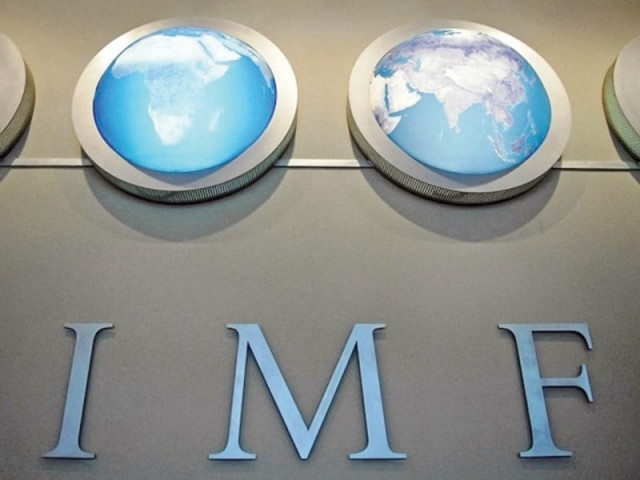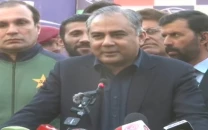Budget 2014-2015: Govt underestimated spending by Rs112b, says IMF
Report deals a blow to claim of 4.1% economic growth.

The International Monetary Fund (IMF) has worked out the federal government’s current expenditure requirements at Rs3.242 trillion, which is Rs112 billion higher than the expenses approved by the National Assembly.
The IMF estimates suggest that while approving the new fiscal year’s budget the federal government understated its expenses on defence, debt servicing, subsidies and grants. These components were also under-pitched in the last fiscal year by the previous government.
Analysts and independent economists say the purpose of understating these expenses is to hide the actual budget deficit – an exercise that is tantamount to doctoring the figures. The federal government has been accused of understating its expenses, in order to keep spending under the limits prescribed by the IMF. Rana Assad Amin, the finance ministry’s spokesman, was not available for comment.
According to the IMF’s report on the third review of the $6.7billion bailout programme, the federal government’s current expenditures in the fiscal year 2014-15 will be Rs3.242 trillion. According to the budget-in-brief document approved by the NA last months, the current expenditures are estimated at Rs3.130 trillion.
The report has also dealt a blow to the government’s claim that 4.1 per cent economic growth was achieved in the last fiscal year, raising another question over the credibility of the finance ministry and Pakistan Bureau of Statistics. The Pakistan Tehreek-e-Insaf’s Asad Umer has said that a privilege motion will be moved against the government for misleading the National Assembly.
While the government has estimated Rs1.325 trillion in debt servicing expenses, the IMF has projected the figure at Rs1.352 trillion. The difference of opinion was on external debt servicing, which the government understated by Rs28 billion. In the last fiscal year, the federal government understated the expenses on interest payments by Rs34 billion, according to budget documents.
Similarly, contrary to the federal government’s estimates of Rs203 billion expenditure on subsidies, the IMF says spending may increase to Rs229 billion. In the last fiscal year, the actual spending on subsidies was Rs83 billion higher than the budgeted amount.
The IMF has projected a defence budget of Rs706 billion – higher by Rs7 billion over the parliament’s approved amount. The real increase it has shown is under ‘grants and transfers’. The IMF has projected Rs442 billion spending on grants, Rs71 billion higher than official claims. Most of these grants are given to the armed forces to meet their expenses as the stated defence budget does not reflect the full expenditure on defence affairs.
In order to keep the overall budget deficit at its dictated level of 4.8 per cent or Rs1.404 trillion of the GDP, the IMF’s estimates show a steep cut of Rs164 billion on development spending, entirely on provincial annual development plans.
The IMF has shown the total development spending at Rs1.012 trillion against the national development budget of Rs1.175 trillion, which is approved by the National Economic Council. The IMF has projected the federal development spending at Rs525 billion, the same level approved by the National Assembly.
However, the IMF has shown provincial spending at Rs486 billion as the official figure of Rs650 billion on provincial development plans. Sources said the IMF’s understanding is based on the federal government’s assurance that the four provinces will save Rs289 billion from their budgets to keep the overall budget deficit at 4.8 per cent of the GDP.
According to the IMF, the budget deficit of 4.8 per cent is also slightly lower than the one approved by the National Assembly. In the last fiscal year, the National Assembly approved the budget deficit equivalent to 6.3 per cent of the GDP but eventually it was the IMF’s determined budget deficit of 5.8 per cent of the GDP that the government followed throughout the fiscal year.
Published in The Express Tribune, July 12th, 2014.



















COMMENTS
Comments are moderated and generally will be posted if they are on-topic and not abusive.
For more information, please see our Comments FAQ